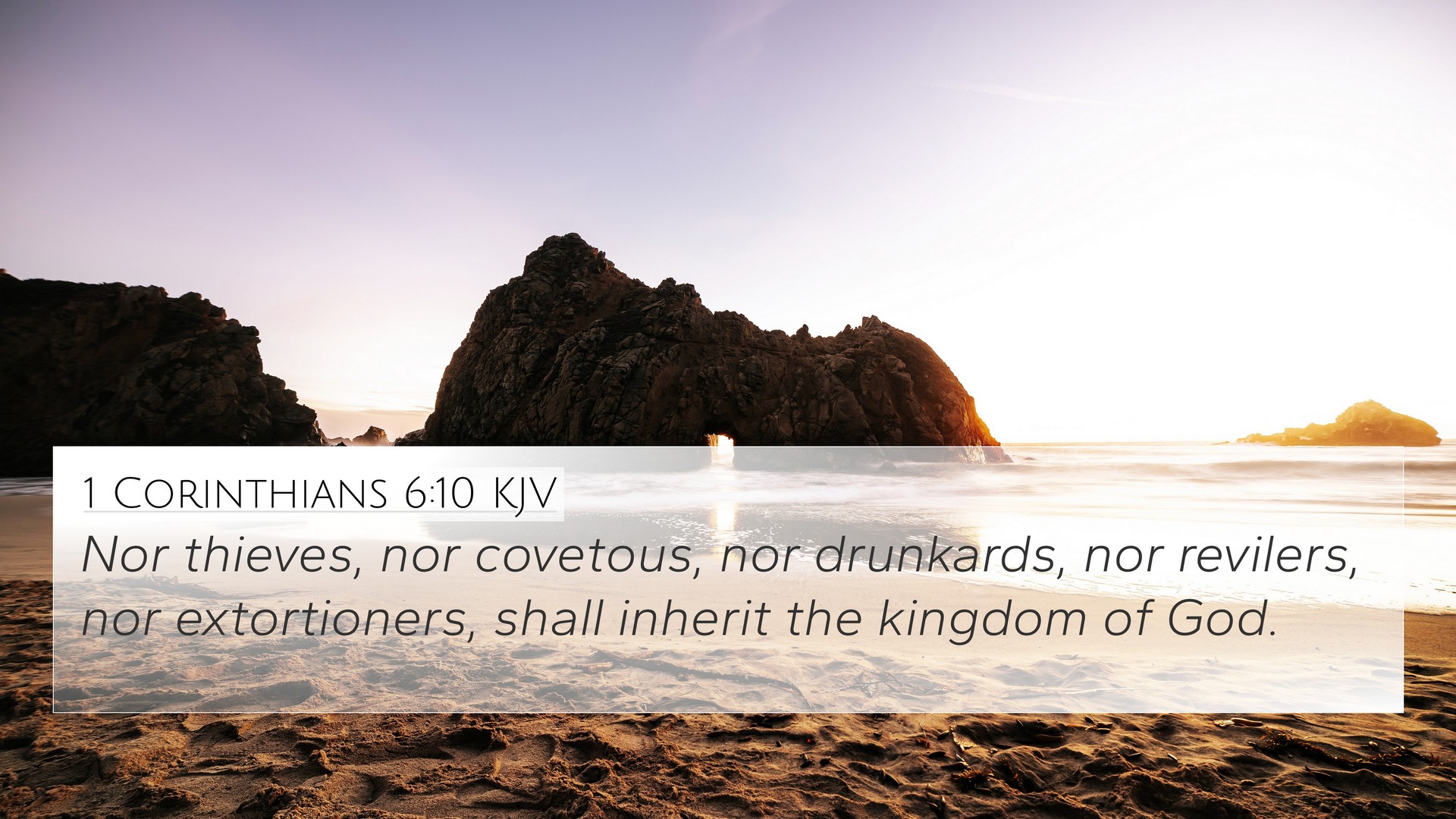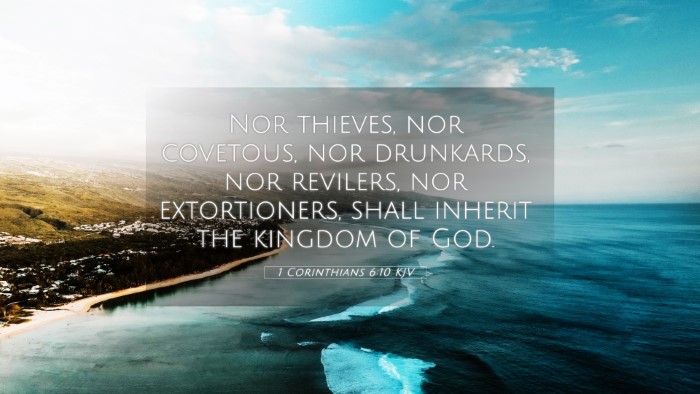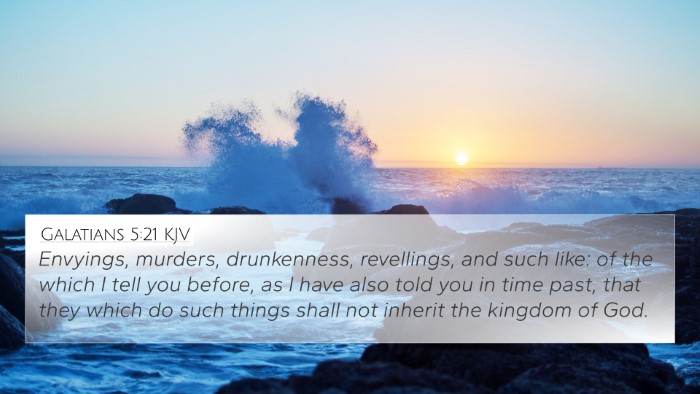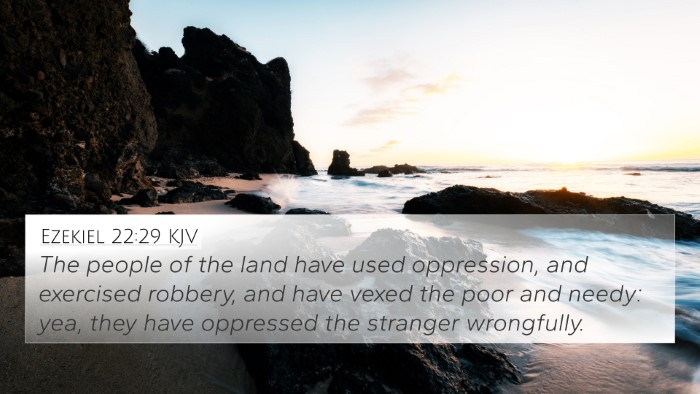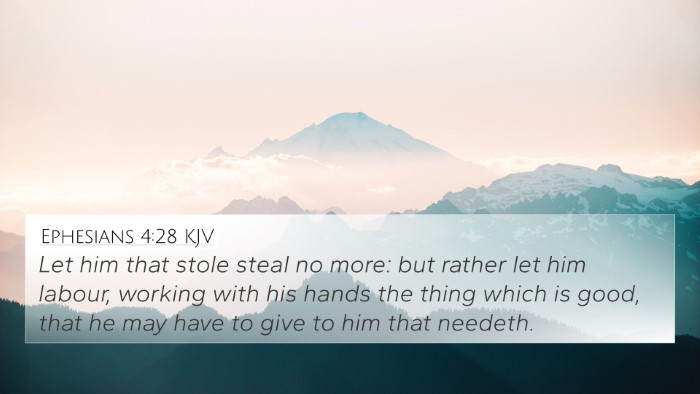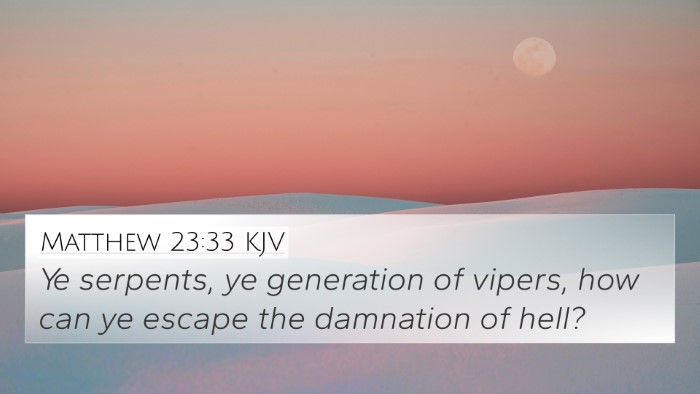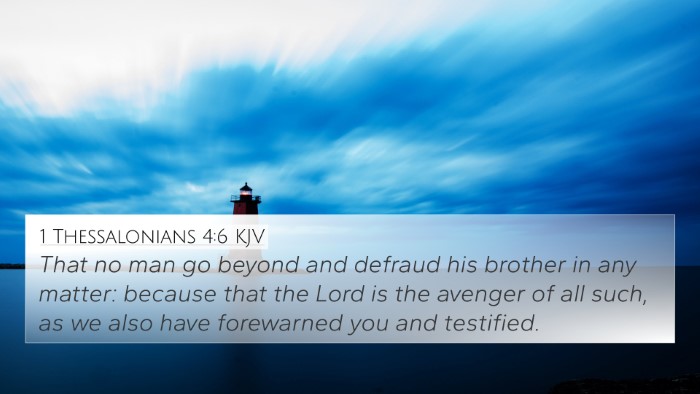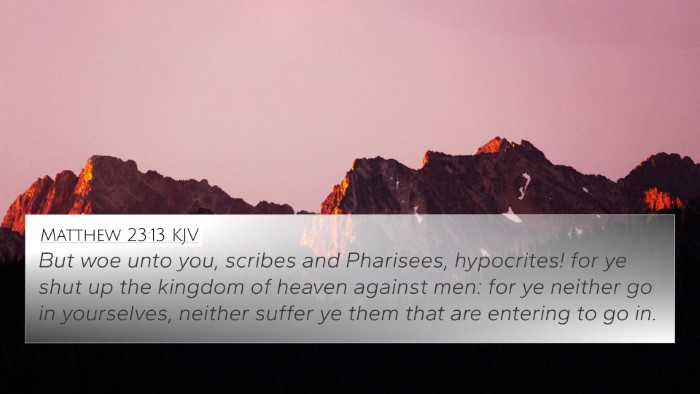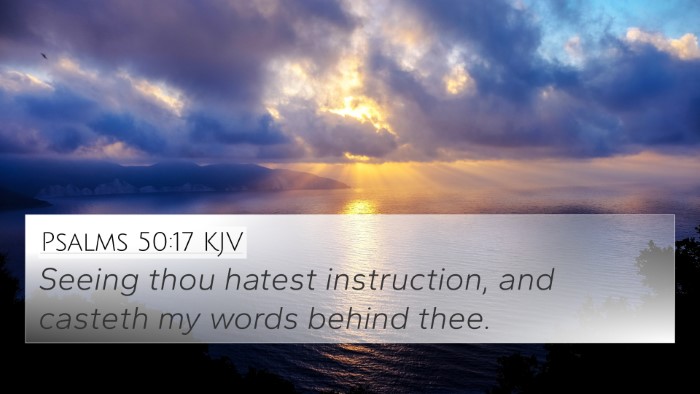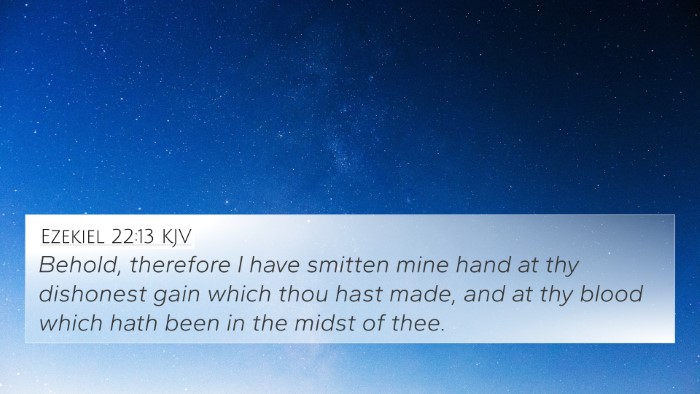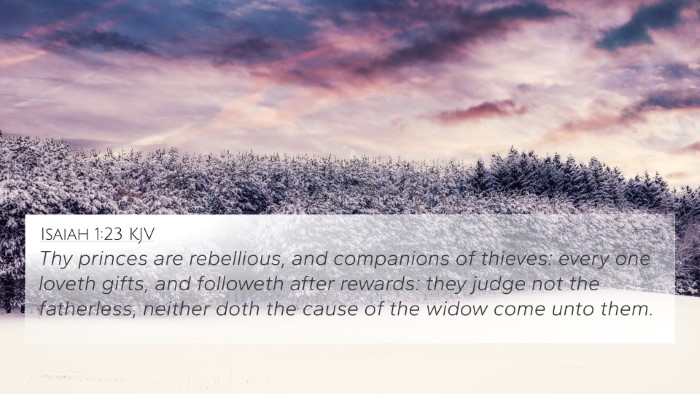Bible Verse: 1 Corinthians 6:10
Verse Text: "Nor thieves, nor covetous, nor drunkards, nor revilers, nor extortioners, shall inherit the kingdom of God."
Summary of 1 Corinthians 6:10 Meaning
This verse presents a stringent warning about the nature of sinful behaviors and their consequences. Paul explicitly lists various immoral actions that exclude individuals from inheriting God's kingdom. The comprehensive nature of this exhortation serves to remind believers of the seriousness of spiritual and moral conduct.
Commentary Insights
Matthew Henry: In his commentary, Henry notes that the Apostle Paul is emphasizing the importance of moral purity in the Christian community. He asserts that the Apostle provides a list of those who practice such sins, demonstrating they cannot be part of God's eternal kingdom. The stark message serves as both a warning and an encouragement towards holiness.
Albert Barnes: Barnes elaborates that Paul is addressing those who habitually engage in the sins listed, indicating a lifestyle of rebellion against God. He explains that the underlying principle is that faith and a sinful lifestyle are incongruent. Genuine conversion necessitates a transformation away from these behaviors, reinforcing the idea that salvation is coupled with a call to righteous living.
Adam Clarke: Clarke emphasizes the moral implications of such behavior as being fundamentally opposed to the character of God. He stresses that the terms used—thieves, covetous, drunkenness, etc.—point to intentional and habitual sinners. This characterization serves as a caution that true believers must strive for sanctification, highlighting God's standards in holding individuals accountable for their choices.
Key Thematic Connections
- Moral Black and White: Paul lays out clear distinctions between righteous and sinful lifestyles, emphasizing that God's grace calls for transformation.
- Consequences of Sin: The verse serves as a sobering reminder that habitual sin has eternal repercussions, forming a thematic connection to judgment and mercy throughout Scripture.
- Call to Holiness: This passage aligns with other Biblical exhortations for believers to pursue a life of holiness, as reiterated in various letters from Paul and other apostles.
Bible Cross-References
1 Corinthians 6:10 connects thematically and contextually with several other Bible verses:
- Galatians 5:19-21: A list of sinful behaviors and the warning against inheriting the kingdom of God.
- Ephesians 5:5: A similar declaration regarding immorality and inheritance in Christ's kingdom.
- Romans 1:29-32: A depiction of sinful actions that leads to spiritual death and separation from God.
- 1 Peter 1:15-16: An exhortation to be holy as God is holy, urging a transformation from sinful behaviors.
- Revelation 21:8: A listing of those who will not enter heaven, mirroring the sentiments in Corinthians.
- 1 John 3:15: The seriousness of hatred and its spiritual consequences, linking to behaviors listed in Corinthians.
- Matthew 7:21-23: A warning against false professions of faith without the accompanying righteous behavior.
Inter-Biblical Dialogue
This verse creates an inter-Biblical dialogue by linking New Testament teachings on grace and righteousness with Old Testament principles of justice and moral conduct:
- Deuteronomy 30:15-16: Choosing life vs. death, aligning with the call to righteousness in the New Testament.
- Proverbs 15:29: The Lord is far from the wicked but hears the prayers of the righteous, connecting to the theme of divine inheritance.
Tools for Bible Cross-Referencing
For a deeper study, utilizing tools such as a bible concordance or bible cross-reference guide can help in exploring more about related themes. Understanding how to use these guides enhances the depth of one’s Bible study:
- How to find cross-references in the Bible: By seeking out parallel verses and contrasting themes.
- Cross-reference Bible study: Engaging with multiple verses to understand a singular theme better.
- Identifying connections between Old and New Testament: Delving into Scripture for cohesive meanings and principles.
Conclusion
1 Corinthians 6:10 serves as a critical reminder for believers to reflect on their conduct and the implications of their life choices in relation to their faith. By cross-referencing this verse with others and understanding its ethical demands, believers can cultivate a life that honors God and reflects the transformative power of the gospel.
This reflective process also opens up avenues for further exploration and study within Scripture, facilitating richer theological understanding and personal application.
